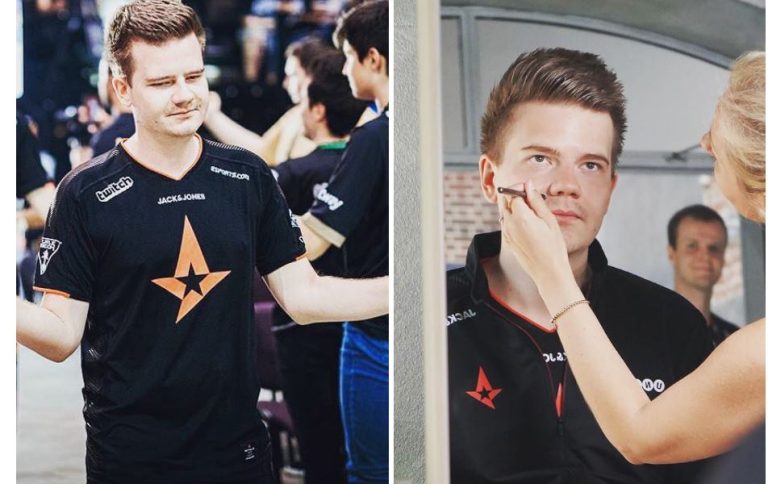Few names have been as well-known in competitive gaming over the last ten years as Peter “dupreeh” Rasmussen. In addition to becoming one of the most decorated players in Counter-Strike history, he quietly surpassed some traditional sports stars in net worth, estimated at $6 to $7 million, thanks to his unwavering mentality and exceptionally focused career. His ascent was based on financial savvy, long-term tenacity, and tactical skill—qualities that rarely garner media attention—rather than clickbait or controversy.
Dupreeh established a very effective and remarkably long-lasting financial base by utilizing a mix of tournament profits, consistent monthly salaries, and in-game digital assets like stickers. His tournament earnings alone amounted to more than $2.2 million, which is a noteworthy sum for any professional in esports but especially significant given how early in his career he reached this milestone.
Peter “dupreeh” Rasmussen (Counter-Strike Esports Icon)
| Attribute | Detail |
|---|---|
| Full Name | Peter Rothmann Rasmussen |
| Nickname | dupreeh |
| Date of Birth | March 26, 1993 |
| Age (2025) | 32 years old |
| Nationality | Danish |
| Primary Profession | Retired Professional Counter-Strike Player |
| Total Prize Winnings | $2,225,525.08 from 198 tournaments |
| Major Titles | 5 CS:GO Majors (most in history) |
| Career Duration | 2012–2025 |
| Top Teams | Astralis, Team Vitality, Team Falcons |
| Estimated Net Worth | $6 million to $7 million |
He held elite contracts with companies like Astralis, Team Vitality, and later Team Falcons for almost ten years. These roles were founded on trust rather than just performance, and they were supported by his composed demeanor and dependable play. His monthly pay is thought to have been in the range of $20,000 to $25,000 for the majority of this time. This source of income probably added about $2.7 million to his net worth over time, demonstrating the importance of sustained stability.
The money received from sticker sales is what distinguishes Dupreeh’s income structure as being especially creative. Before every Major, CS:GO publisher Valve released player and team stickers, converting these collectibles into passive revenue streams. Dupreeh probably made at least $1 million from sticker sales alone because he was the only player to attend all 19 CS:GO Majors. For context, this revenue was derived solely from fan support and the longevity of the brand, without any extra performance pressure.
Dupreeh decided to keep his entire attention on team competition during the pandemic, when many esports careers stalled or shifted toward streaming. He might have been able to stay a reliable asset on any roster by refusing to divide his focus between creating content and playing games. His fifth and final Major championship with Team Vitality in 2023 was the result of his unwavering dedication, and it was a poignant moment that subtly solidified his legacy.
In 2025, Dupreeh declared his retirement from professional sports at the BLAST.tv Austin Major. “I just wanted to make a name and maybe win one Major,” he said. It was modest, sincere, and remarkably humble. “I didn’t expect five.” It summed up a profession based on discipline rather than drama. He gained his reputation by being incredibly dependable under duress and remarkably successful in high-stakes matches, rather than by chasing after viral moments.
His transition from competitive play to broadcast analysis was surprisingly smooth. His tactically astute and lucid commentary during panel segments won him praise for assisting new viewers in comprehending the intricate strategies of CS:GO. He was developing into a knowledgeable mentor for the upcoming generation in addition to being a skilled player.
Dupreeh’s career reflects that of quiet champions like Tim Duncan or Iniesta—subtle yet consistently exceptional—in the context of esport’s development. His choices, both on and off the server, demonstrated a thorough comprehension of long-term success. Others burned quickly and faded, but Dupreeh persevered, demonstrating that long-term esport careers can be incredibly fulfilling both monetarily and culturally.
Denmark has seen a significant improvement in its attitude toward gaming over the last ten years. Esport evolved from a specialized interest to a respected endeavor, thanks to players like Dupreeh. Football-style coaching structures started to be incorporated into youth academies, some of which are currently supported by tech companies. Dupreeh helped change public perception by remaining successful and grounded, making competitive gaming a respectable career choice for young people in Denmark.
He also became a model for future athletes who wish to excel without compromising their integrity by fusing talent, discipline, and consistency. Players like Dupreeh give the scene substance—measurable performance, clever branding, and long-term viability—as traditional celebrities like Shaquille O’Neal and David Beckham invest more in esport.


